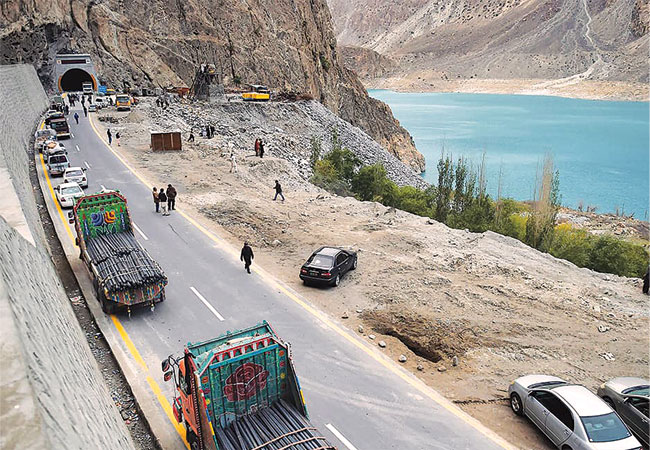 The completion of China-Pakistan Economic Corridor (CPEC) would usher in a new era of development and prosperity in Xinjiang, speakers at a webinar said.
The completion of China-Pakistan Economic Corridor (CPEC) would usher in a new era of development and prosperity in Xinjiang, speakers at a webinar said.
The webinar titled ‘The success of Chinese policy against extremism in Xinjiang’ was organized by the Pak-China Center for Friendship and Cooperation, Islamabad to highlight the economic development in Xinjiang due to the effective policy of Chinese government. Xinjiang – a western province of China – is a vast region of deserts and mountains, possessing abundant natural resources such as metal ores, sub-soil and renewable energy resources.
“Belt and Road Initiative infused hope for a brighter future in Xinjiang as it connects China with eight countries including Afghanistan, India, Kazakhstan, Kirghizstan, Mongolia, Pakistan, Russia and Tajikistan,” they said. “Xinjiang is today one of the fast growing areas of China with the energy sector leading the way. Big industries are being set up in the region and the CPEC will meet its growing energy needs,” said columnist and former ambassador Javed Hafiz, highlighting success of the Chinese policy which spurred economic growth in the area.
Contrary to the propaganda peddled by foreign media about instability in Xinjiang, he said the Chinese government had been successful in poverty alleviation, controlling extremism and making this region a hub of development activities. He said the central government had invested 2.35 trillion Yuan in Xinjiang during the last several years. Between 2014 and 2018, about 10 percent of the provincial population had been lifted out of poverty.
He said last year, Xinjiang rural GDP (gross domestic product) increased by 9.7 per cent. “Today, no child is out of school in Xinjiang,” he said, adding that at the moment, unemployment has been alleviated in the region, whereas youth from other areas came to meet huge development requirements in Xinjiang.
The former ambassador noted that the health indicators of Xinjiang showed a life expectancy of 72 years in the region, proving the fact that ‘Beijing does care about people of Xinjiang’. He also rejected the propaganda of motivated quarters about presence of concentrated camps in the area. “The region has camps which only impart vocational training and language courses,” he added.
Former PAF official Sultan Mahmood Hali said the fake news was churned out by the enemy of China based on lies and negated the on ground situation of Xinjiang. He said China adopted ‘Going West’ policy in 1999 to reduce disequilibrium between western provinces of China through a dynamic investment policy, aimed at boosting industrial production infrastructure development. The policy had been renewed several times since 1999, he added.
Hali said a development plan was rolled out in Xinjiang in 2010 to transform its rich base of raw materials such as coal, gold, oil and uranium into a real economic force along with agriculture and tourism. He said Chinese President Xin Jinping brought this policy a leap forward with the launching of the Belt and Road Initiative which made Xinjiang province the outpost to the Eurasian continent.
Prof Engr Zamir Ahmed Awan said the Chinese government, adopting a unique model of development, had asked 19 other provinces to allocate a certain amount of funds for Xinjiang development. The provinces including Beijing, Shanghai, Gaungdong, Zhejiang and Liaoning were engaged in the commitment of ‘pairing assistance’ support projects in Xinjiang to promote the development of agriculture, industry, technology, education and health services in the region.
The webinar was also attended by foreign journalists, namely Editor-in-Chief of the French monthly Nouvelle Solidarite Christine Bierre, National President of New Zealand China Friendship Society Dave Bormwich, Washington Bureau Chief of the Weekly Magzine – Executive Intelligence Review – Willam Jones and Chief Journalist of Chinese Gaung Ming Daily Professor Zhou Rong. They also rejected the propaganda of foreign media about prevalence of extremism in Xinjiang and endorsed the fact that the region had been witnessing economic development and prosperity.